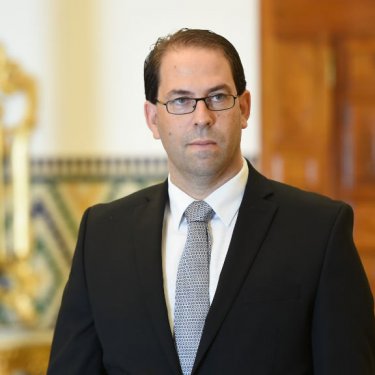Open letter to Tunisia’s premier about decline in media freedom

Prime Minister Youssef Chahed
Government of Tunisia
Place du Gouvernement, La Kasbah
1020 Tunis
Tunis, 17 March 2017
Dear Prime Minister,
Reporters Without Borders (RSF) would like to express to you its concern about the decline in media freedom in recent months in your country.
Journalists continue to share with us their difficulties in obtaining information from your government’s ministries and agencies, although Circular No. 4 of 16 January, about the operations of the information and communication offices of ministries and other governmental entities, was withdrawn on 27 February.
Earlier this month, the ministry of higher education refused to respond to the questions of Mohamed Yousfi, the editor of the Hakaek Online news website, and to his interview requests. An internal memo was also circulated within the ministry that blacklisted three media outlets.
This practice is not new. In May 2015, an education ministry directive banned journalists from entering schools. A major crisis for journalists followed in January 2016, when their work was badly hit by the application of a directive issued on the 16th of that month. The circulation of such directives sends a negative signal about the political will to create a favourable environment for the right to inform and be informed, which is protected by the constitution and regulated by a law approved in March 2015.
We would also like to share with you our deep concern about the proceedings brought by the military prosecutor under the code of military justice against three journalists, Jamel Arfaoui (of Tunisie Telegraph), Rached Khiari (of Al Sadaa) and Mohamed Hadj Mansour (of Al Thawra News). Hadj Mansour has been sentenced to nine months in prison*.
The use of a military court to prosecute and convict journalists violates international law, under which such courts should have no jurisdiction over civilians. Civilians should be tried according to international standards of due process, which are guaranteed by article 14 of the International Covenant on Civil and Political Rights and are enshrined in articles 31, 32 and 49 of Tunisia’s constitution.
In General Comment No. 34 of July 2011, the United Nations Human Rights Committee said it was particular important that there should be no restriction on the right to express views about figures in the public and political domain, and that this should include criticism of the army, the government and other institutions.
Only Decree Law No. 115-2011 on Freedom of the Press, Printing and Publishing should be applied to cases of alleged offences via the press. No other laws should be applied to such cases. We published a study in July 2014 that explained why we regard Decree Law No. 115-2011 as the only safeguard of a minimum level of protection for media freedom and its actors. This study is still valid today.
The situation of permanent correspondents of foreign media outlets is also a source of concern. According to our sources, the security forces have been asking correspondents since mid-December to carry special permits when they travel outside the capital. Such permits were not required in the past, except in particularly sensitive areas. This kind of requirement obstructs the work of journalists, all the more so for correspondents who already have government accreditation.
We would finally like to remind the Tunisian government of the urgent need to shed all possible light on the fate of Sofiane Chourabi and Nadhir Ktari, the Tunisian journalists who disappeared in Libya in 2014. Last January, the Libyan TV channel Al Hadath relayed the account of a former Libyan Jihadi fighter, who said the two journalists were dead. This corroborates information obtained by our organization. After this report, your government said legal and diplomatic procedures had been initiated. But no further details were provided.
RSF therefore asks the Tunisian government to:
1.Stop prosecuting journalists under the code of military justice, the penal code or any other law except Decree Law No. 115-2011 on Freedom of the Press, Printing and Publishing when they are accused of committing offences via the press.
2. Stop resorting to directives and memos to blacklist media outlets and restrict the right to inform.
3. Respect journalists’ right to information, facilitate their work and set up the Access to Information Authority without delay.
4.Allow the correspondents of accredited foreign media to carry out their work freely.
5. Publish the foreign ministry’s strategy and timeframes for shedding light on the disappearance of Sofiane Chourabi and Nadhir Guetari.
6. Urgently create a mixed commission of enquiry – consisting of government and NGO representatives – into the disappearance of the two Tunisian journalists in Libya.
I thank you in advance for the attention you give to our requests.
Sincerely,
Christophe Deloire
Secretary-General
*Mohamed Hadj Mansour was released on 3 March 2017.



